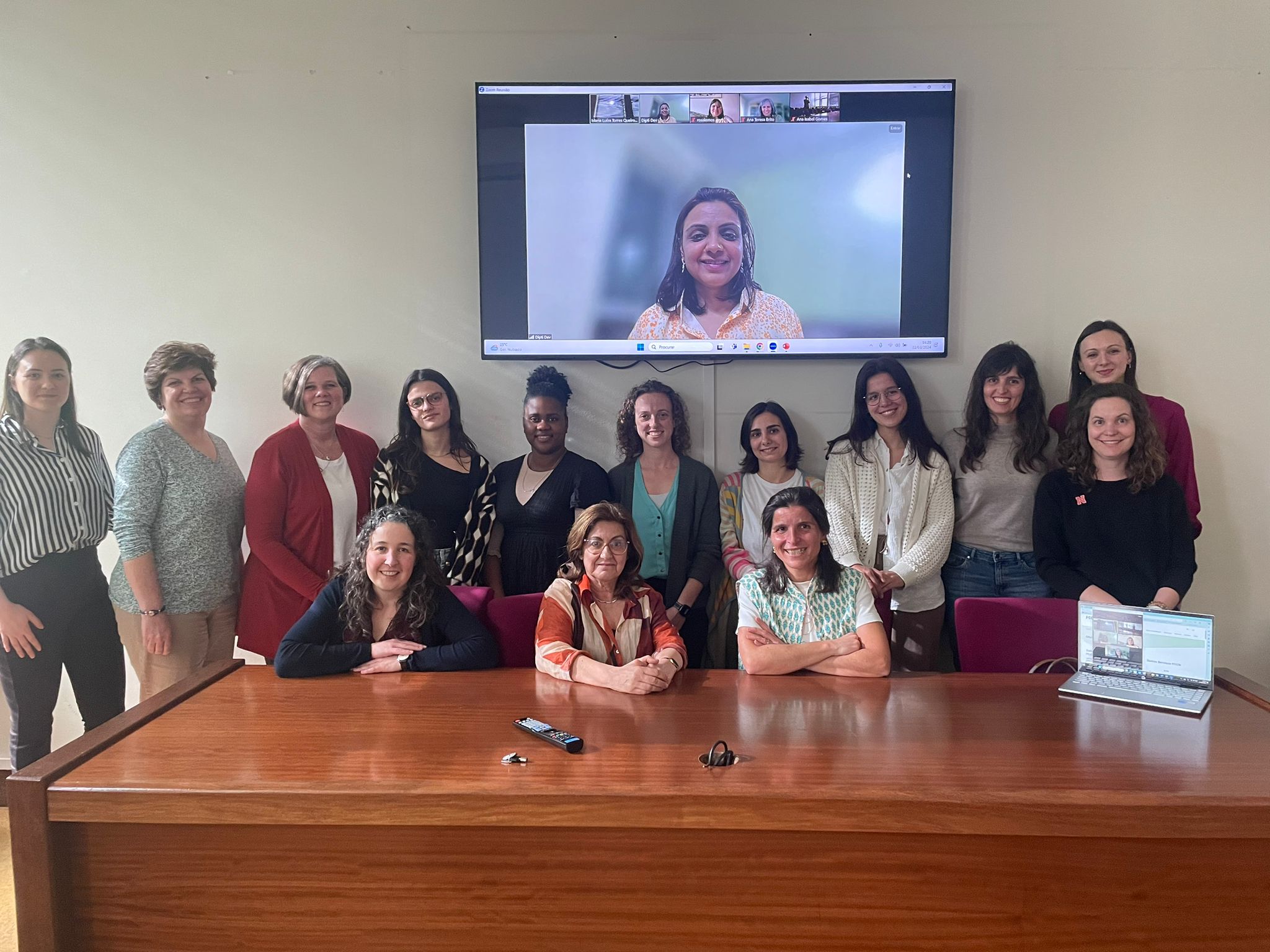By Nasrin Nawa, (originally featured on Nebraska Extension's News)
The University of Nebraska Extension program EAT Family Style (Ecological Approach to Family Style), launched in 2015, is now being implemented internationally by the University of Lisbon in Portugal.
This innovative initiative is designed to improve children’s nutritional intake by promoting responsive feeding practices during children’s mealtimes and cultivating healthier eating habits, by fostering children’s autonomy, self-regulation, and self-help skills. The goal of this program is to build community capacity to support young children’s healthy dietary intake and prevent obesity and chronic diseases such as cancer, diabetes, and cardiovascular disease.
“Over a span of three years, the program underwent meticulous development, piloting and evaluation to ensure its effectiveness and desired outcomes,” stated Betti and Richard Robinson Associate Professor and Extension Specialist Dipti Dev, who leads this initiative. By integrating research, education and Extension services, the program provides online interactive modules and coaching to childcare providers and families, with a focus on responsive feeding techniques rather than controlling practices.
The program’s impact has transcended Nebraska’s borders, capturing the interest of international institutions. The University of Lisbon sought permission to utilize Nebraska Extension’s EAT Family Style program within their own communities. In the fall of 2022, the Lisbon university sent a team member to visit the EAT Family Style team at the University of Nebraska-Lincoln, to gather insights for implementing the program in Portugal.
Carly Applegarth, the program’s manager, recounted the sequence of events: Following this initial visit to Nebraska, “a delegation from UNL and Nebraska Extension traveled to Lisbon this year to witness firsthand the program’s implementation, tour local childcare facilities, and engage in knowledge-sharing sessions. The objective was to adapt the EAT Family Style program to better suit Lisbon’s community-based initiatives promoting healthy lifestyles among children.”
During the visit, observations and discussions at childcare centers and an elementary school highlighted the feeding environment and the unique challenges faced by educators in Lisbon, providing valuable insights for refining the program’s approach. The EAT Family Style program’s modules, translated into Portuguese, are currently being implemented by the University of Lisbon.
Ana Isabel Gomes, a professor at the University of Lisbon, underscores the significance of collaboration among UNL Extension specialists and educators from diverse backgrounds in successfully developing and implementing such programs.
“While we know the worth of the program and the health benefits of making nutritional changes early in life, it was impactful to see the program be a catalyst for other parts of the globe working with the same mission in mind!” said Toni Wilson, an EAT Family Style program coach. “It was amazing to see how one program can be adapted for similar outcomes while following a different process that works for the culture and lifestyle of another country.”
Another EAT Family Style coach, Audra Losey, said, “During our discussions with the research team implementing EAT Family Style in Portugal, I realized how much we had in common despite our cultural differences. We were able to discuss, as new colleagues, challenges faced and brainstorm solutions or share what had worked in our own experiences.”
In addition to Applegarth, Losey and Wilson, Extension Educators Marusa Jonas, Thays Silva and Ann Fenton also participated in the trip to Lisbon. Dev joined them virtually from India.
The collaboration story begins with a Master’s students at the college of Psychology, University of Lisbon, Maria Isabel Brazão, who was conducting their thesis dissertation on early childhood responsive feeding years ago and shared the resource with their professors. During their research, she discovered Nebraska Extension’s EAT Family Style program online. Subsequently, the College of Psychology connected with Nebraska Extension and requested to utilize the program.
“The goal is to fully implement the EAT Family Style program and expand the reach within the broader communities,” stated Fernandes Gomes. Currently, the University of Lisbon has piloted the program involving 22 educators. Preliminary analysis has shown a reduction in the frequency of coercive feeding practices.
According to Dev, the University of Lisbon employs the same assessment tool developed by her research team at UNL — Mealtime Observation in Child Care (MOCC), which compares findings with Nebraska to facilitate broader implementation and future partnerships.
The EAT Family Style program comprises 66 interactive short videos filmed in real childcare settings, supplemented with quizzes, goal sheets, workbooks, and handouts. Coaching is available to support the intervention’s implementation.
Dev is exploring opportunities to extend the program to universities in India and beyond, aiming to benefit more communities with improved nutrition practices.
“The EAT Family Style online program is very comprehensive and adaptable to various environments and cultures, making mealtime easier, more enjoyable, and healthier for both children and caregivers, said Dev. “Every child worldwide deserves a nutritious and joyful mealtime experience.”
